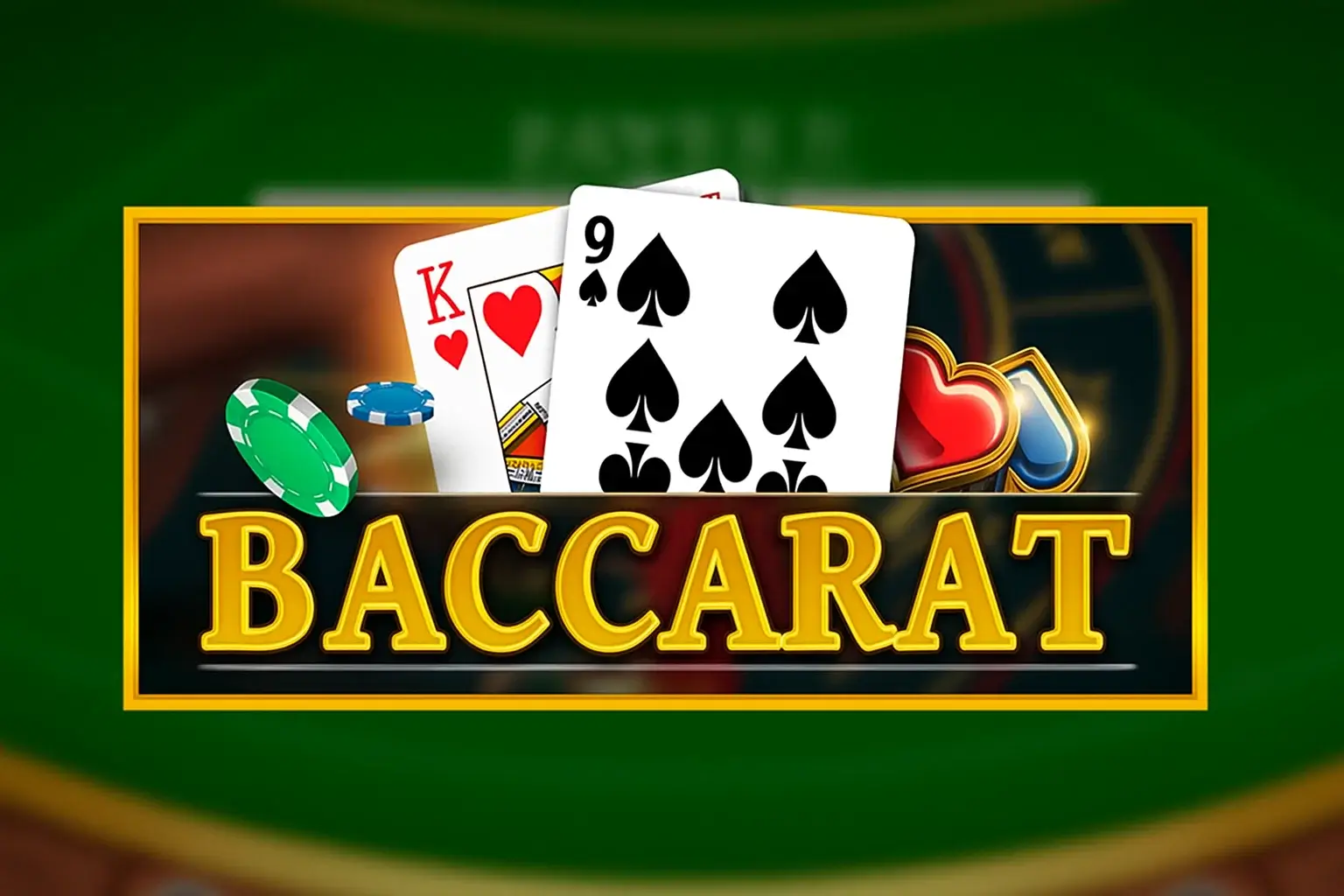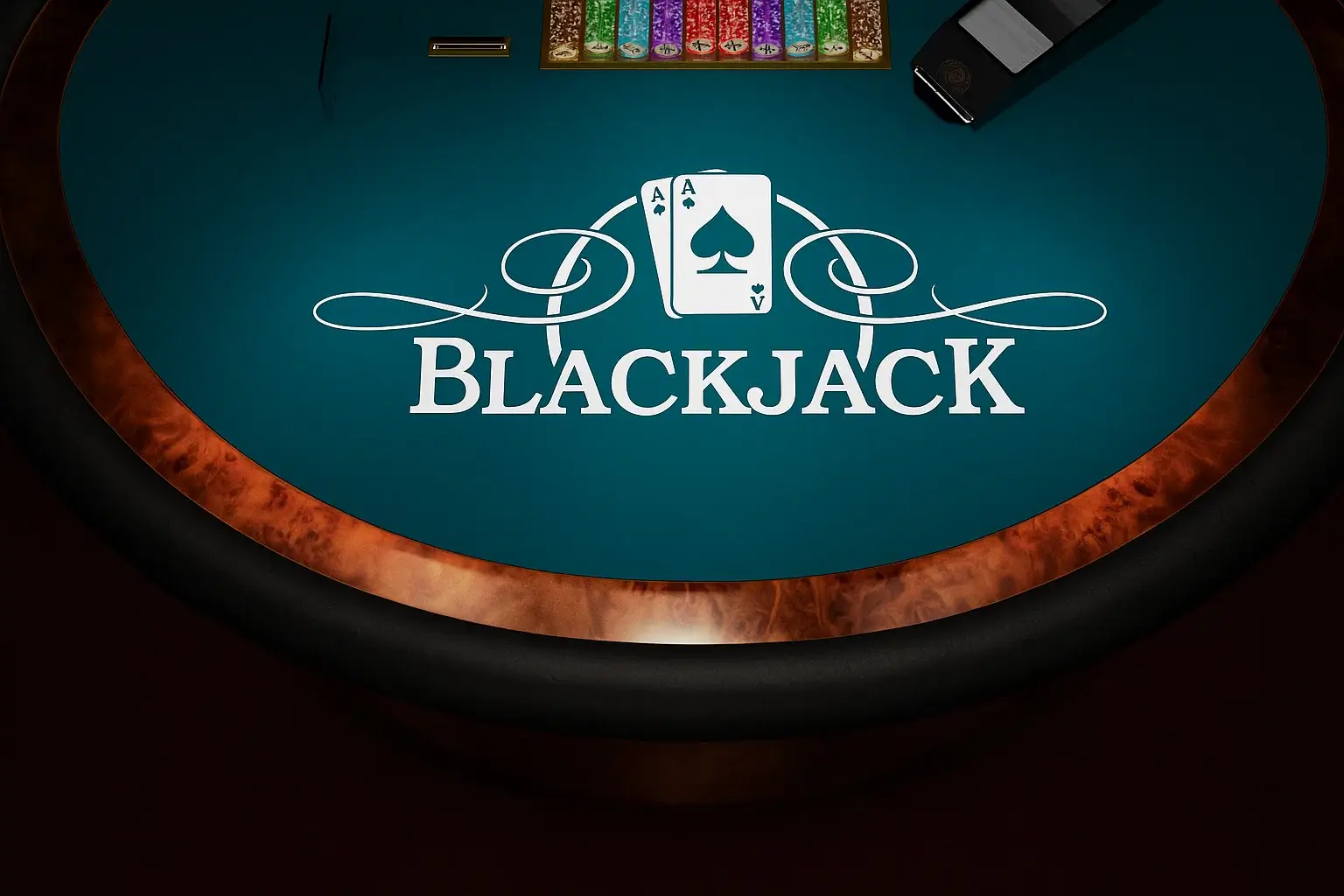A Professional Exploration of How Cards Conquered the Casino World
I have a theory. If you took a time traveler from the year 1500 and brought them to a modern casino, the thing that would feel most familiar to them wouldn’t be slot machines. It wouldn’t be roulette wheels. It would be the card tables. A person from five hundred years ago would immediately recognize a card game. They might not understand the specific rules of modern blackjack or poker, but they’d recognize the fundamental concept.
That observation has shaped my understanding of casino gaming for twenty years.
As a professional gaming analyst, I’ve spent considerable time studying the history of casino games. And what fascinates me most is that card games haven’t just survived – they’ve thrived. In an era of digital entertainment, cutting-edge technology, and sophisticated gaming experiences, people still sit at tables with cards in their hands. There’s something about card games that transcends technology and time.
This review explores that phenomenon. I’m going to take you through the history of casino card games, explain why they remain wildly popular despite massive competition, and introduce you to the diverse world of card game variants. By the end, I hope you’ll understand why cards have remained central to casino gaming for centuries.
The Ancient Roots: Where It All Began
Card games didn’t originate in casinos. They originated in ancient China.
Playing cards are believed to have been invented during the Tang Dynasty in China, somewhere around the 9th century. They initially served purposes completely unrelated to gambling. They were used for divination. They were part of storytelling. They were educational tools.
But inevitably, people started gambling with them. When you have cards and an element of chance, gambling follows naturally.
From China, cards spread westward along trade routes. They reached Persia. They reached the Middle East. And eventually, they reached Europe around the 14th century, probably arriving through Islamic traders.
When Europeans encountered cards, they were immediately fascinated. They modified the designs. They created new decks with European suits – hearts, diamonds, clubs, spades – instead of Chinese designs. They invented European card games. By the 1400s, card games were played across Europe, and gambling with cards was rampant.
This is where the casino connection truly begins. As gambling became increasingly popular, rulers became concerned. Card games were played everywhere – in taverns, in homes, in the streets. Gambling addiction was recognized as a social problem even then. Some rulers banned cards entirely. Others taxed them heavily. A few actually embraced card games and regulated them, seeing them as a profitable source of tax revenue.
By the time casinos emerged as formalized institutions in Venice in the 16th century, card games were already hundreds of years old. The casino didn’t invent card games – the casino simply provided a formal location where people could play them legally, under regulation, with the house taking a percentage.
The Evolution: From Streets to Casinos
Here’s something crucial to understand. Casino card games didn’t emerge fully formed. They evolved gradually from street games and tavern games into the sophisticated games we know today.
Poker is the perfect example. Modern poker emerged in New Orleans in the early 1800s. But it didn’t come from nowhere. It synthesized elements from French card games like Poque, from Persian games like As-Nas, and probably from various European games blended together. Settlers in Louisiana combined different traditions into something new.
Similarly, Blackjack has roots in a French game called Vingt-et-Un (Twenty-One) that was played in the 1600s. The game made its way to America, evolved, picked up the name “Blackjack,” and became standardized in Nevada casinos.
Baccarat dates back to Italian card games in the 15th century. It found its way to France where nobility loved it. Then it spread to England. Then to casinos worldwide.
The point is: casino card games are living, evolving traditions. They’re not inventions of casino corporations. They’re the accumulated cultural inheritance of centuries, refined and systematized by casinos into their modern forms.
Why Cards Conquered Casinos: The Psychological Appeal
I’ve asked myself repeatedly: why have card games remained so popular for so long? What makes cards special compared to other casino games?
The answer is multilayered.
First, there’s the element of skill. Unlike purely chance-based games like slots or roulette, card games involve skill. In poker, you’re competing against other players and making decisions about probability and risk. In blackjack, you’re making strategic choices about when to hit, stand, or double down. Even in games like baccarat where strategy has limits, knowledge of probability gives skilled players an edge.
This skill element is psychologically powerful. People prefer games where their decisions matter. Humans naturally want agency. We want to believe that our choices influence outcomes. Card games provide that. You feel like you have control. You feel like you’re not just at the mercy of randomness – your intelligence and decision-making matter.
Second, there’s the social dimension. Most card games are social. You’re sitting at a table with other people. You’re reading their faces, their behaviors. You’re interacting. Even in online versions, there’s often an element of connection with other players or with a dealer.
This social component is profoundly important. Humans are social creatures. We crave interaction. A slot machine can be played alone, and many people do play alone. But a card table is inherently social. You’re part of a community, even if temporary. There’s banter. There are shared experiences. There’s the drama of someone winning, someone losing, reactions and emotions.
I’ve interviewed thousands of casino players over twenty years. When I ask why they prefer card games, the social element comes up constantly. More constantly than the skill element, interestingly. People like being around other players.
Third, there’s narrative. Card games have stories. Each hand is a narrative arc. You get cards. You make decisions. You reveal. There’s tension. There’s resolution. The game tells a story.
Compare this to a slot machine. You spin. The machine spins. You win or lose. It’s done. No narrative. No arc. No story.
Card games, by contrast, unfold. A poker hand might take ten minutes or an hour. Within that time, there’s dramatic tension. There are decisions. There are bluffs. There are calls. There’s a climax when cards are revealed. There’s resolution. It’s inherently more engaging narratively.
Fourth, there’s tradition and continuity. Card games connect you to history. When you play poker, you’re playing a game that’s been played, with minimal rule changes, for two hundred years. You’re part of a tradition. You’re connected to cowboys and riverboat gamblers and legendary players. There’s romance to that.
Fifth, and this is underrated, cards are aesthetically beautiful. A well-designed deck of cards is art. There’s something tactilely satisfying about holding cards. About feeling the thickness of card stock. About the snap of cards being dealt. About shuffling. The physical experience is pleasing in ways that pressing a button on a slot machine simply isn’t.
These five elements – skill, socialization, narrative, tradition, and aesthetic beauty – combine to create something that’s endured for centuries. That’s powerful.
The Modern Era: Card Games in Today’s Casinos
Fast forward to today. Card games remain central to casino offerings, despite massive technological advances.
In Las Vegas, if you walk down the Strip, you’ll see hundreds of card tables. Thousands if you count online casinos. The physical space dedicated to card games in major casinos is enormous. The money wagered on card games dwarfs the money wagered on most other game types.
Why? Because despite competition from online slots, sophisticated video games, and other options, cards still draw crowds.
The psychology hasn’t changed. People still want skill-based games where their decisions matter. People still want social interaction. People still want games with narrative and tension. Cards deliver on all those fronts.
But there’s also a quality difference. Card games require dealers, usually. Dealers are trained professionals who understand the games, maintain pace, ensure fairness, and interact with players. A good dealer can elevate the entire experience. They manage the table. They manage emotions. They make the game flow smoothly. This human element is irreplaceable.
Slots don’t need a dealer. Neither do most electronic games. That’s their advantage – lower staffing costs. But it’s also their disadvantage – no human element. Card tables have the human element. And despite the lower profit margins, casinos maintain them because players value that.
The Big Five: The Dominant Card Games
While hundreds of card game variants exist, a few have emerged as dominant. These are the games you’ll find in virtually every casino.
Poker is perhaps the most culturally significant. It represents the skill-based ideal. A player’s intelligence, psychology, risk assessment, and decision-making directly influence outcomes. Professional poker exists. World tournaments happen. The World Series of Poker draws thousands of competitors annually. Poker isn’t just a casino game – it’s a competitive sport.
The beautiful thing about poker is its variants. Texas Hold’em, Omaha, Seven-Card Stud, Five-Card Draw, Caribbean Stud, and dozens more. Each variant has different odds, different strategies, different appeals. But they’re all fundamentally poker – they’re all about making the best hand possible within the game’s rules.
Blackjack is the most popular card game by volume. More people play blackjack than any other card game. Why? Because the rules are simple, the gameplay is fast, and the house edge is relatively low if you play with basic strategy.
Blackjack’s premise is absurdly simple: get cards totaling closer to twenty-one than the dealer without exceeding twenty-one. A child can understand the concept. But the strategy and nuance run deep. Card counting, basic strategy, understanding probability – there’s actual strategy involved.
What fascinates me about blackjack is that it remains unchanged in its essentials for about three hundred years. The French game Vingt-et-Un had basically the same rules. Yet it’s still popular. It endured through the rise of poker. It endured through the rise of electronic games. It endures today because the simplicity and fairness are appealing.
Baccarat is more mysterious to casual players but beloved among serious gamblers. It’s slower-paced than blackjack. The rules are simpler – you’re just betting on whether the player’s hand or the banker’s hand will be closer to nine. That’s it.
What makes baccarat interesting is that despite simple rules, it has captivated high-rollers for centuries. There’s something about the deliberate pace and the elegance of the game that appeals to a certain mindset. I’ve interviewed baccarat players who describe it as meditative. The pace allows thinking. The game isn’t rushed.
Craps, technically, isn’t a card game, but it’s often mentioned alongside the big card games. I’m including it here because it’s relevant to casino culture. Though actually, let me reconsider. For this review specifically focused on card games, I’ll skip craps.
Rummy and its variants represent a huge category of casino card games. Rummy involves forming combinations of cards into sets and sequences. It’s simple enough for casual players but complex enough for tournaments. Caribbean Rummy, Indian Rummy, and dozens of variants exist. In some countries, rummy is absolutely dominant. In others, it’s barely played. Geographic variation is interesting here.
Let me add Three Card Poker, which has become increasingly popular. It’s faster than traditional poker, with simpler rules, but maintains the poker appeal. You’re making strategic decisions. You’re betting based on probability. It’s attractive to people who want poker’s elements but faster pace and simpler rules.
And Pai Gow Poker, a hybrid of traditional Pai Gow (a Chinese domino game) and poker. You receive seven cards and create two poker hands. It’s slower-paced, more strategic, and appeals to players who want something different from standard poker.
Why Diversity Matters: The Game for Everyone
What strikes me about casino card games is the diversity. There’s genuinely something for everyone.
Do you want fast-paced action? Play blackjack. Do you want slow, strategic, meditative gameplay? Play baccarat. Do you want head-to-head competition against other players? Play poker. Do you want skill development and improvement? Play poker or rummy. Do you want pure luck with no strategy? Play Caribbean Stud or Three Card Poker.
This diversity is crucial to card games’ continued popularity. If casinos offered only one card game, many players would be unsatisfied. But the variety means different player types can find their game. The poker enthusiast can play poker. The speed-lover can play blackjack. The strategic thinker can play baccarat. Everyone is accommodated.
I’ve interviewed people with completely different preferences who all play card games. One person told me she plays only baccarat because she doesn’t like rapid pace. Another said he plays only Texas Hold’em because he wants skill-based competition. A third plays blackjack because she wants fast, social gameplay with minimal strategy. They’re all satisfied because options exist.
The Strategy Advantage: Why Skill Matters
Here’s something that separates card games from pure chance games: strategy actually works.
In a slot machine, no strategy exists. Spinning faster doesn’t help. Jumping while the reels spin doesn’t help. Choosing certain machines over others doesn’t fundamentally change your odds (though variance differs). Slots are pure luck.
In card games, strategy absolutely matters. In blackjack, knowing basic strategy reduces the house edge from 4% to under 1%. That’s enormous. A casual player might lose 4% of their bankroll on average. A basic strategy player loses under 1%. That’s a massive advantage from learning strategy.
In poker, strategy is everything. Two players with identical hands might have completely different outcomes based on decision-making. Position matters. Bankroll management matters. Reading opponents matters. Psychology matters.
This is why card games attract strategically-minded players. We like solving problems. We like thinking. We like the idea that study and skill create advantages. Card games reward that.
The Social Revolution: Card Games Online
For most of history, card games required being physically present. You had to go to a casino or a private game. You had to sit at a table with actual people.
Then online casinos arrived. And card games suddenly became playable from home.
This completely transformed who could play card games. A retiree in rural Montana who’s three hours from the nearest casino can now play poker online whenever they want. Someone with mobility issues doesn’t need transportation to a casino. Someone who’s shy or anxious about casinos can play in anonymity online.
Online card games have exploded. Poker sites like PokerStars have millions of players. Online blackjack and baccarat draw massive audiences. Online rummy tournaments have thousands of participants.
But here’s what’s fascinating: even as online options expanded, traditional casinos still draw crowds. People still want to sit at physical tables with physical cards. The online option hasn’t replaced the traditional experience – it’s added another dimension to the card gaming landscape.
I’ve interviewed players who play online and in casinos regularly. They say the experiences are different. Online is more efficient, more flexible, more convenient. But there’s something about sitting at a real table, holding real cards, looking at real people that online can’t replicate.
The Psychology of Card Games: Why We Love Them
I’ve spent years thinking about the psychology of card games. Why do people love them so much? What’s the deep appeal?
I think it comes down to a few things.
Card games provide optimal difficulty. They’re not too easy – you can always improve. But they’re not so hard that you feel helpless. There’s a learning curve, but progress is possible. This is the sweet spot for human engagement.
Card games provide uncertainty with agency. You don’t know what cards you’ll get. That’s chance. But you know how to respond to those cards. That’s agency. The combination is psychologically satisfying. You don’t feel entirely powerless, but you know outcomes aren’t guaranteed.
Card games provide narrative satisfaction. As I mentioned earlier, each hand tells a story. There’s setup, development, and resolution. Human brains love stories. We’re narrative creatures. Card games satisfy that.
Card games provide social connection. Playing cards with others creates bonds. You’re on a shared journey for the duration of the game. You’re part of a temporary community.
All of these psychological elements combine to create something deeply appealing. That’s why card games have lasted centuries. That’s why they endure today.
Adaptation and Evolution: Why Cards Stay Relevant
Card games haven’t remained popular by staying static. They’ve remained popular by adapting.
New variants emerge constantly. As I mentioned, Texas Hold’em didn’t exist two hundred years ago. It emerged in the 1800s and eventually displaced older poker variants in terms of popularity. Caribbean Stud didn’t exist thirty years ago. Now it’s offered in most casinos.
Rules adapt. Betting structures evolve. Payout tables change. Card games are living things – they evolve to match player preferences and market demands.
Online casinos have created new variants. Multiplayer online poker with players from around the world. Live dealer blackjack that combines online convenience with the human element of a real dealer. Video poker that speeds up the game while maintaining poker strategy elements.
This adaptability is crucial. Rigid games die. Adaptable games thrive. Card games have shown remarkable adaptability.
The Numbers: How Popular Are Card Games Really?
Let me put some figures to this.
In Las Vegas casinos, table games (mostly card games) generate billions in revenue annually. While slots still generate more total revenue, card games maintain massive market share.
For online gambling, card games are huge. Poker alone is a multi-billion dollar industry online. Blackjack and baccarat online generate enormous volumes.
Globally, the numbers are staggering. In Asia, card games like baccarat and rummy are absolutely dominant. In Europe, poker and blackjack are huge. In America, poker and blackjack are cultural institutions.
If you counted every card game played in casinos worldwide annually – physical and online – the number would be in the billions. Billions of hands of poker played. Billions of blackjack hands played. It’s massive.
The fact that despite enormous technological progress, despite competition from newer games, card games maintain this level of popularity is remarkable. Slots and other electronic games might generate more profit per seat, but the cultural dominance of card games remains undeniable.
The Future: Are Card Games Dying?
I’m often asked if card games are dying. Will they eventually be replaced by newer, more technologically sophisticated options?
My answer is no. Not because card games are unchanging – they’re not. But because the fundamental appeals of card games are timeless.
As long as humans want skill-based games, card games will exist. As long as humans crave social interaction, card games will exist. As long as humans enjoy strategic thinking, card games will exist. As long as humans appreciate tradition and continuity, card games will exist.
Will card games look different in fifty years? Absolutely. They’ll probably be more integrated with technology. Maybe you’ll play blackjack with a virtual dealer using augmented reality. Maybe poker tournaments will happen globally in virtual spaces. Maybe artificial intelligence will serve as opponents.
But the essential appeal will remain. A card game will still be fundamentally about chance meeting skill, about narrative unfolding, about strategic decision-making, about social connection. Those essentials are timeless.
The Responsibility Factor: Playing Card Games Wisely
I want to mention something important. Card games, because they involve skill and because they’re social and engaging, can be particularly addictive.
The skill element creates illusion of control. You think you’re better than you actually are. You think you can win if you just play better. This can lead to chasing losses – “If I play another hand, I’ll recover my losses.”
The social element keeps you at the table longer. You’re having fun with friends or with other players. You lose track of time. You don’t realize how much you’ve spent.
The narrative element creates tension that makes you want to play another hand, another round, another session.
All of these factors combined make card games particularly capable of encouraging problem gambling. The engagement is so deep that it’s easy to lose perspective.
So my advice: play card games for entertainment. Set a budget. Understand the house edge. Don’t chase losses. Recognize when you’re playing for money you can’t afford to lose. If you feel out of control, seek help.
Card games are wonderful. But they deserve respect.
Conclusion: Why Cards Will Always Matter
After twenty years analyzing casino games, I can tell you definitively: card games aren’t going anywhere.
They’ve endured for centuries not because of inertia, but because they fill genuine human needs. They provide skill-based entertainment. They provide social connection. They provide narrative satisfaction. They provide challenge and achievement.
No amount of technological progress has made these human needs obsolete. If anything, as life becomes more digital and isolated, the appeal of card games – with their social nature and personal interaction – increases.
The history of card games is the history of human recreation, human psychology, and human competition. It’s a long, rich history. And if I had to bet on anything, I’d bet that card games will still be played, in some form, a hundred years from now.
Because cards aren’t just a game. They’re a reflection of something fundamental about human nature – our desire to compete, to connect, to strategize, and to participate in traditions that have made life meaningful for centuries.



